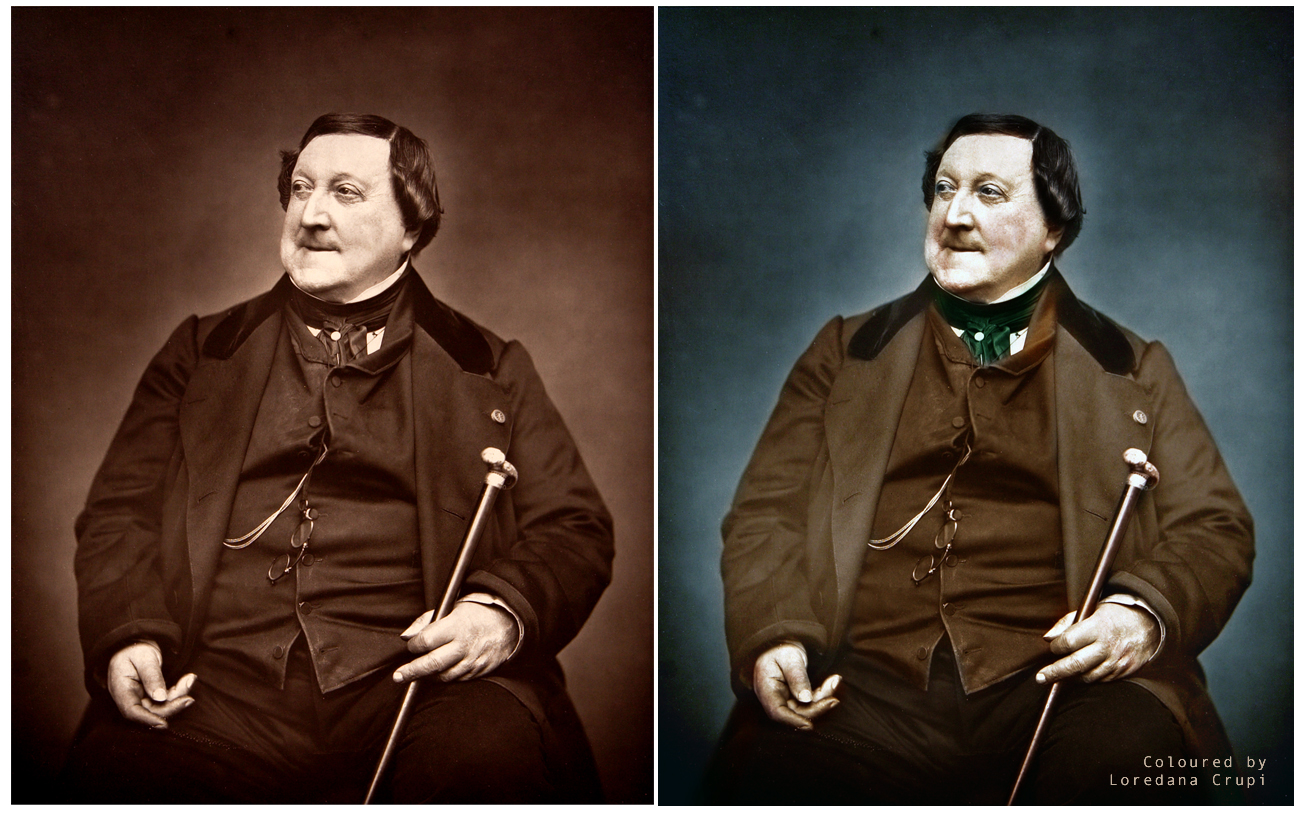“Give me a laundry list and I’ll set it to music.”
–Rossini
Italian composer Gioachino Rossini is arguably the operatic master of the early nineteenth-century. A mogul in the Italian and Parisian Opera circuits, Rossini revolutionized the form during its transition from the Classical to Romantic period with his personal artistic flare. Not only memorable for his music, Rossini was also a vibrant personality known for his luxurious lifestyle, gastronomic gluttony, and intriguing relationships with his muses; being an all around interesting character both within and beyond the music world. Let’s get to know the man who composed the music for MYOpera’s upcoming production of L’Italiana in Algeri all the way back in 1813!
1. Viva Italia: Rossini the Italian Opera mogul
Born to a musical family in Pesaro in 1792; Rossini was immersed in music early on. His mother’s singing career led him to Bologna where he would eventually study in the conservatory as a cello and composition student. His Italian heritage became a defining aspect of his early career, with his most successful compositions belonging to the Italian opera buffa genre. Rossini reclaimed Italian opera for his countrymen and anticipated what would come in the way of belcanto singing.[1] He is best remembered as a composer of Italian opera. Even Beethoven, speaking of The Barber of Seville, remarked: “I congratulate you. It will be played as long as Italian opera exists. Never try to write anything else but opera buffa; any other style would do violence to your nature.” Rossini embraced the essential qualities of Italian music and paved the way for its future in the Romantic era.
2. Rossini’s success was instantaneous:
Rossini premiered his first opera, La cambiale di matrimonio, in 1810 at the age of 18. From then on, his career was nothing but uphill with subsequent operas. By the age of 21, he was considered the big-daddy of Italian opera after the immense popularity of Il barbiere Di Siviglia in 1816, arguably his most famous work. Rossini’s operas were sensational across Europe and featured in all major urban centres to audiences comparable to the pop concerts of today. By the time of his retirement in 1829 at the age of 37, he had been praised as the most popular opera composer in history, inspiring the compositions of upcoming Romantic Opera
3. Rossini and his music: new meets old
Rossini embraced the musical transition of his generation by balancing traditional and innovative approaches to operatic composition. Inspired by the opera buffas of Haydn and Mozart, Rossini expanded upon classical conventions towards a compositional style that was edgy and popular for its time. Some defining qualities to listen for in all of Rossini’s opera buffas include: acrobatic vocal melismas, extreme crescendo buildups, driving rythyms, clear form, ostinatos and attention-grabbing overtures, all of which create the exciting and larger than life musical and dramatic experience for which his music is famous.
4. Rossini plagiarized… from himself!
“Musical Plagiarism”, or compositional borrowing, was not as frowned upon as it is today. Rossini was member to a long-standing musical tradition in which composers expanded upon the work of others or themselves to create music (cough cough: Mozart, Handel, Bach, Haydn, etc.). In the prime of his career, Rossini had composed a staggering 38 operas by the time he was 39 thanks largely to this process! When you’ve experienced a few of Rossini’s opera buffas you will quickly realize that many elements are consistent in his repertoire: the styles and structure of arias, overtures, coloratura, and dynamic build-ups. Rossini had a formula for opera that he stuck with for most of his career! Think of it this way, Rossini’s vast operatic output within such a short span of time can relate to the modern music industry, in which songwriters create within a prescribed format. This by no means minimizes his achievement in opera, but reveals how his ability to recycle was one key to his success.
5. Rossini really, really, really loved food!
Food played a big role in Rossini’s life! From drinking the sacramental wine left over from mass as an altar boy, to composing an aria in the time it took his risotto to cook, to weeping over the sight of a truffle-stuffed turkey kicked overboard during a picnic, food and gastronomy was an extreme passion the composer indulged at every opportunity. Many famous dishes have even been conceived thanks to Rossini’s fine taste, with Escoffier’s cookbooks containing numerous recipes dedicated to the composer and several supposedly created by him. Food was so influential on Rossini that numerous compositions were conceived while waiting or enjoying food, notably composing the famous aria “Nacqui all’Affanno e al Pianto” in 25 minutes at a dinner party. Keep your eyes and ears open for references to fine food in L’Italiana in Algeri!
Robin Melick is a music student at Wilfrid Laurier University, ad he was a volunteer intern with MYOpera in the summer of 2016. Learn more about Robin in his Volunteer Spotlight!

